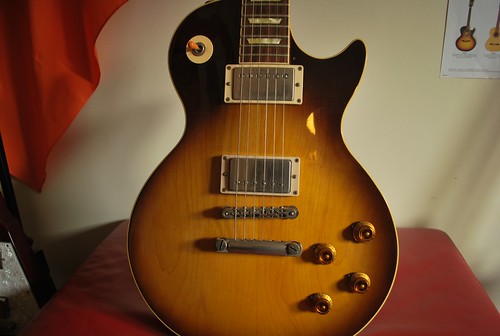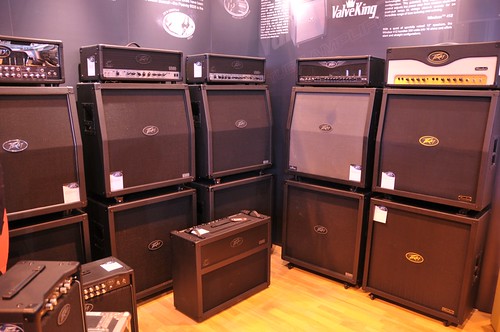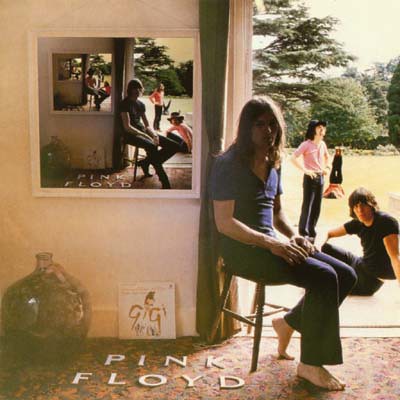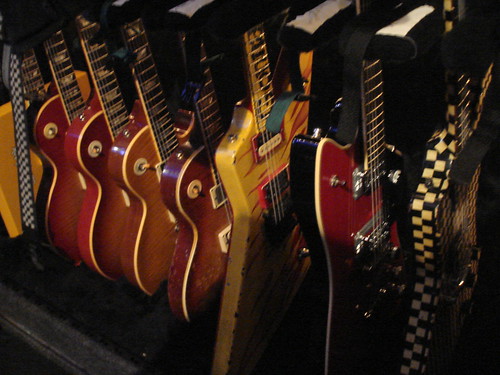If you’re a guitar player, there’s a chance that you have a favourite brand of guitar. If you’re not a guitar player but you love your music, then it is likely that you know someone who has their own favourite brand of guitar.

Flickr.com / Freebird_71
Ask someone why they prefer Gibson to Fender, for example, or vice versa, or substitute these two iconic guitar brands for two others. A lot of the time, the answer you will get is related to the sound, which takes us onto the question at hand. Does the sound of your guitar depend on the brand?
How Your Guitar Brand Influences the Sound
The answer to the question is “yes and no,” but mainly no. Sound confusing? Allow us to explain.
The first thing to consider is that each guitar brand produces many models of guitar, each with their own distinct style and sound. This is why the answer is mainly no. You cannot listen to a guitar and say “that’s a Gibson,” for example, because you wouldn’t know the type of Gibson it was. At the same time, you could never legislate for how the guitar was tuned. Certain models of guitar do sound the similar, such as stratocaster style guitars and telecaster style guitars, but you might struggle to identify the specific brand behind each.
However, the brand, or it may be more accurate to say the manufacturers, of your guitar, do influence the sound to some extent, as they decide on the design specs and the component parts of the guitar.
These component parts play the biggest part in determining the sound of your guitar. Here are some of the most important. It is crucial to understand that many of these components can be changed, allowing each guitarist to create a fully customised set-up for a sound unique to them.
Guitar Pickups
There is a whole range of different guitar pickups available that can help musicians to create a several sounds. Once you get familiar with the guitar and understand the difference particular pickups can make, you will have an almost limitless range of sound at your disposal. The big problem for you will be creating something unique without sounding like you’ve done something different just for the sake of it.
Guitar Strings
Thicker strings, the type of strings in terms of the alloy used, and the weight of your strings can all influence the sound you get out of your instrument. The heavier and thicker the strings, the “harder” and more aggressive the sound of your guitar will feel. Lighter, thinner strings can be great for getting a distinct sound, but this can often come across as weak and struggle to breakthrough in a group situation.
How You Play
Your own level of aggression when playing your guitar, as well as whether you use a pick or choose to finger pick, can influence how your guitar sounds. Once you understand this, you’ll become much more confident as a guitarist and really start to believe in your own style.
Legend has it that Les Paul once broke a guitar after being asked who made it; the insinuation being that it was the brand, not Paul, who had created the sound.
Your Amp
The sheer number of guitar amps available, and the range of settings that you can get with those close to the top of the market, mean that, along with your playing style, your amp has a big part to play in what your guitar sounds like. If you’re just getting started, it is best to stick to basics in terms of equipment, so that you understand what your guitar should sound like before you start playing around with effects and distortion.
The main determining factor in the sound of your guitar is you; be sure to take ownership of your own guitar sound and have the confidence to develop the sound you want.








